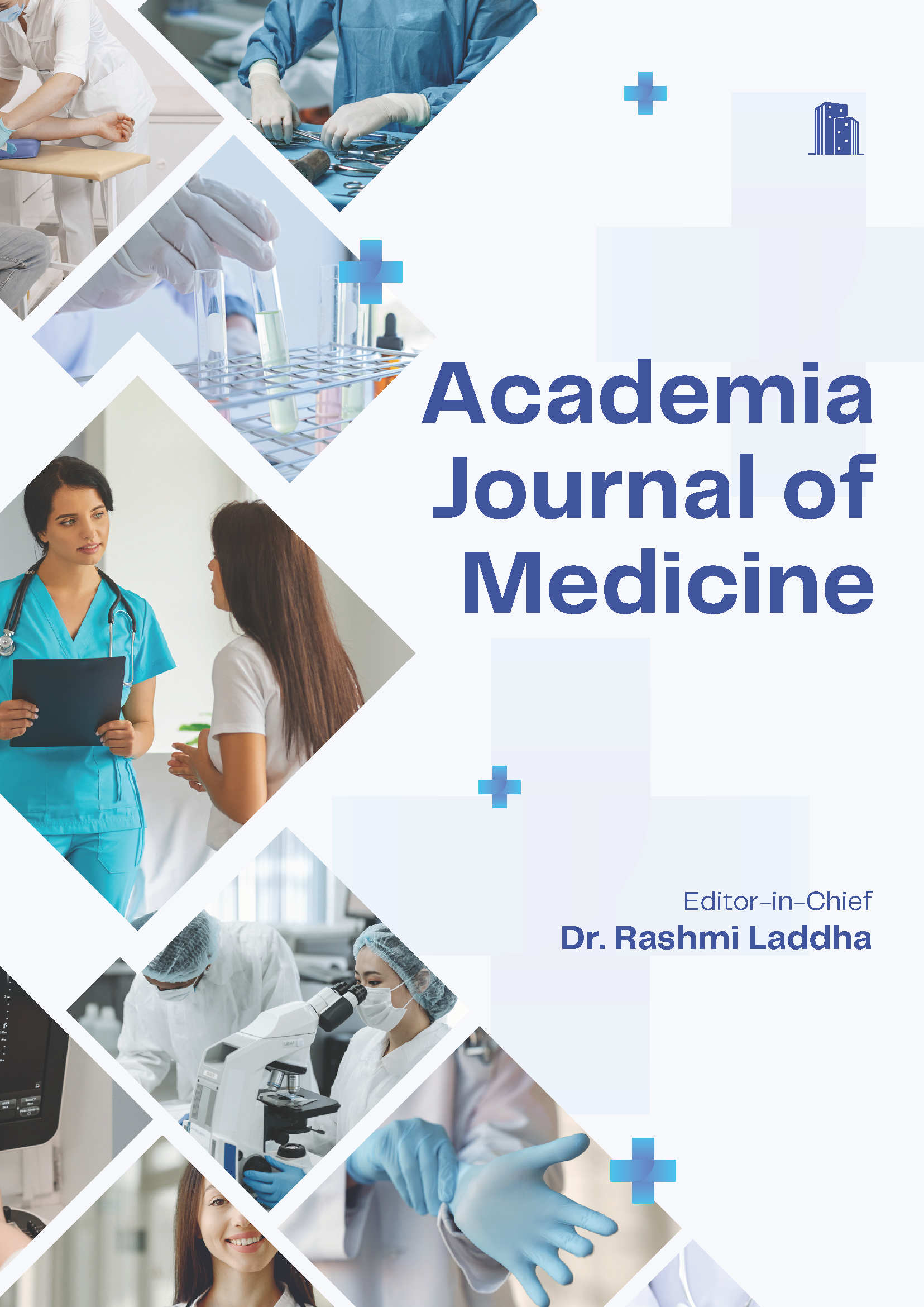To evaluate the Efficacy of Teneligliptin as an add-on Therapy in type 2 Diabetes Mellitus (T2DM) Patients with Inadequate Glycemic Control with a Stable dose of Metformin 1 to 2g and Glimipride 1 to 6mg Per Day
Keywords:
Diabetes Mellitus, Metformin, TeneligliptinAbstract
Background: To evaluate the effectiveness of Teneligliptin as an add-on therapy in type 2 diabetes mellitus (T2DM) patients inadequately controlled with a stable dose of Metformin and Glimipride. Subjects and Methods: Pateints with type II DM on Metformin 1-2gm per day and Glimipride 1-4mg per day were prescribed with TENELIGLIPTIN 20mg tablet once daily. The patients Were followed up in OPD every month till 3 months. At the end of 3 months, Blood Pressure, Body weight CBC,KFT,LFT, Lipid Profile, Fasting Blood sugar, 2 hours Post parandial Blood sugar and HbA1c was assessed. The difference in all the mentioned parameters was used to determine the effectiveness of TENELIGLIPTIN. Result: There were more males as compared to females. Mean age among the study subjects was 59.08±12.17 years Family history of diabetes was revealed in 34.17% of the subjects.48.33% of the subjects had diabetes since 5-10 years. Hypertension and cardiovascular disease was revealed in 14.17% and 6.67% of the subjects respectively. After intervention, mean weight among study subjects reduced to 71.97 from 72.61. After intervention; HbA1c, FBS and PPBS reduced to 7.02±0.44, 131.70±6.17 and 204.95±9.39 Mean Triglyceride, HDL, LDL and VLDL among the study subjects was 151.76±6.19, 38.28±2.87, 108.11±6.43 and 39.32±3.12 among the study subjects. Conclusion: The present assessment shows patients with T2DM who were treated with teneligliptin had measurably large and clinical important reductions in HbA1c levels.
Downloads
References
1. Kaveeshwar SA, Cornwall J. The current state of diabetes mellitus in India. Australas Med J. 2014;7(1):45–48. Available from: https://doi.org/10.4066/amj.2013.1979.
2. Van Ackerbroeck S, Schepens T, Janssens K, Jorens PG, Verbrugghe W, Collet S, et al. Incidence and predisposing factors for the development of disturbed glucose metabolism and DIabetes mellitus AFter Intensive Care admission: the DIAFIC study. Crit Care. 2015;19(35):1–12.
3. Deed G, Barlow J, Kuo I. Early and tight glycaemic control - the key to managing type 2 diabetes. Aust Fam Physician. 2012;41(9):681–684.
4. Agarwal P, Jindal C, Sapakal V. Efficacy and Safety of Teneligliptin in Indian Patients with Inadequately Controlled Type 2 Diabetes Mellitus: A Randomized, Double-blind Study. Indian J Endocrinol Metab. 2018;22(1):41–46. Available from: https://doi.org/10.4103/ijem.ijem_97_16.
5. Donath MY, Ehses JA, Maedler K, Schumann DM, Ellings gaard H, Eppler E, et al. Mechanisms of beta-cell death in type 2 diabetes. Diabetes. 2005;54(2):108–113. Available from: https://doi.org/10.2337/diabetes.54.suppl_2.s108.
6. Rosengren A, Jing X, Eliasson L, Renström E. Why treatment fails in type 2 diabetes. PLoS Med. 2008;5(10):215. Available from: https://dx.doi.org/10.1371/journal.pmed.0050215.
7. Kim BY, Won JC, Lee JH, Kim HS, Park JH, Ha KH, et al. Diabetes Fact Sheets in Korea, 2018: An Appraisal of Current Status. Diabetes Metab J. 2019;43(4):487–494. Available from: https://doi.org/10.4093/dmj.2019.0067.
8. Eto T, Inoue S, Kadowaki T. Effects of once-daily teneligliptin on 24-h blood glucose control and safety in Japanese patients with type 2 diabetes mellitus: a 4-week, randomized, double-blind, placebo-controlled trial. Diabetes Obes Metab. 2012;14(11):1040–1046. Available from: https: //doi.org/10.1111/j.1463-1326.2012.01662.x.
9. Scott LJ. Teneligliptin: a review in type 2 diabetes. Clin Drug Investig. 2015;35(11):765–72. Available from: https: //doi.org/10.1007/s40261-015-0348-9.
10. Raghavan V, Lahiri A, Akul SK, Utpal U, Gupta CN, Sen S. Effect of teneligliptin vs metformin on glycemic control in Indian patients with newly-diagnosed, drug-naïve type 2 diabetes mellitus: A 12-week randomized comparative clinical study. Int J Adv Med. 2019;6:481–489. Available from: https://dx.doi.org/10.18203/2349-3933.ijam20191163.
11. Standards of Medical Care in Diabetes-2019 Abridged for Primary Care Providers. Clin Diabetes. 2019;37(1):11–34.
